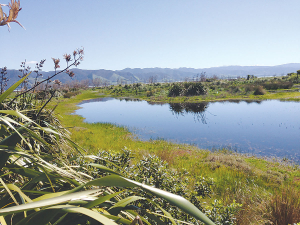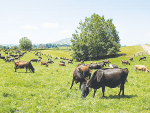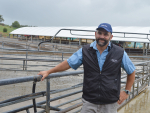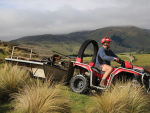OPINION: Wetlands are like giant kidneys, protecting the health of waterways by helping dilute and filter harmful material.
With World Wetlands Day held on 2 February, it is a good time to reflect on these and other benefits that wetlands provide.
Wetlands once covered large areas of the country. Now they are some of our rarest and most at-risk ecosystems. They contain a diverse range of plants and animals and are home to many rare and threatened species that are remnants of the original biodiversity of the area.
It is estimated that about 905 of New Zealand's wetlands have been drained over time, with wetlands now occupying only about two per cent of the country's total land area. This is one of the largest wetland losses anywhere in the world.
Wetland is a generic term for the wet margins of lakes, ponds, rivers, streams, estuaries, lagoons, bogs and swamps.
Natural wetlands have been appropriately termed the 'kidneys of the landscape', because of their ability to store, assimilate and transform contaminants lost from the land before they reach waterways.
One of the practices for reducing the effects of intensive agriculture is to strategically incorporate wetlands into farming systems. Sometimes it may be as simple as fencing out existing wet areas, or it might involve creating one with a low bank.
Many farms have low-lying and wet areas that can be managed as small wetlands with minimal impact on farm production, but potentially major benefits for water quality and biodiversity.
Nitrogen, phosphorous, sediment and pathogens enter waterways through groundwater and surface runoff. Wetland vegetation uses these nutrients for growth.
Research indicates that wetlands remove up to 90 per cent of nitrates from groundwater through a process called denitrification. Wetland plants trap sediment suspended in water, improving water quality. In riparian areas, their roots hold a stream bank together, reducing erosion.
Nutrient loss from farms is greatest when the volume and speed of runoff water is greatest, either through surface runoff or through the soil profile. Therefore, slowing down and controlling water movements across farmland is a critical factor in reducing nutrient loss into waterways.
A series of small, shallow sediment traps or sediment retention dams can be constructed throughout the catchment to take some of the energy out of the water. If these are managed to remain wet for most of the year, they will replace those kidney-like functions and enhance the farm's environmental outcomes.
Wetlands will also regulate the flow of water by soaking up excess floodwater and then slowly releasing it to maintain summer flows or recharge groundwater.
Bigger is generally better, but within a farm, small areas are good because you can create more of them, they are generally well-suited to fit into a farm's budget and topography, they treat the contaminants close to where they come from, and they can generate a more widespread biodiversity benefit across your farm.
Waikato Regional Council can offer free advice to landowners on managing wetlands, including information on fencing, planting and weed control.
It's important to check the rules and regulations and to seek good quality advice to ensure our wetlands are properly cared for as complex, delicate ecosystems in a productive agricultural landscape.
Before undertaking any excavation work, always check with your local council on regulations regarding earthworks in and around natural waterways and wetlands.
Bala Tikkisetty is a sustainable agriculture advisor (technical) at Waikato Regional Council.


















